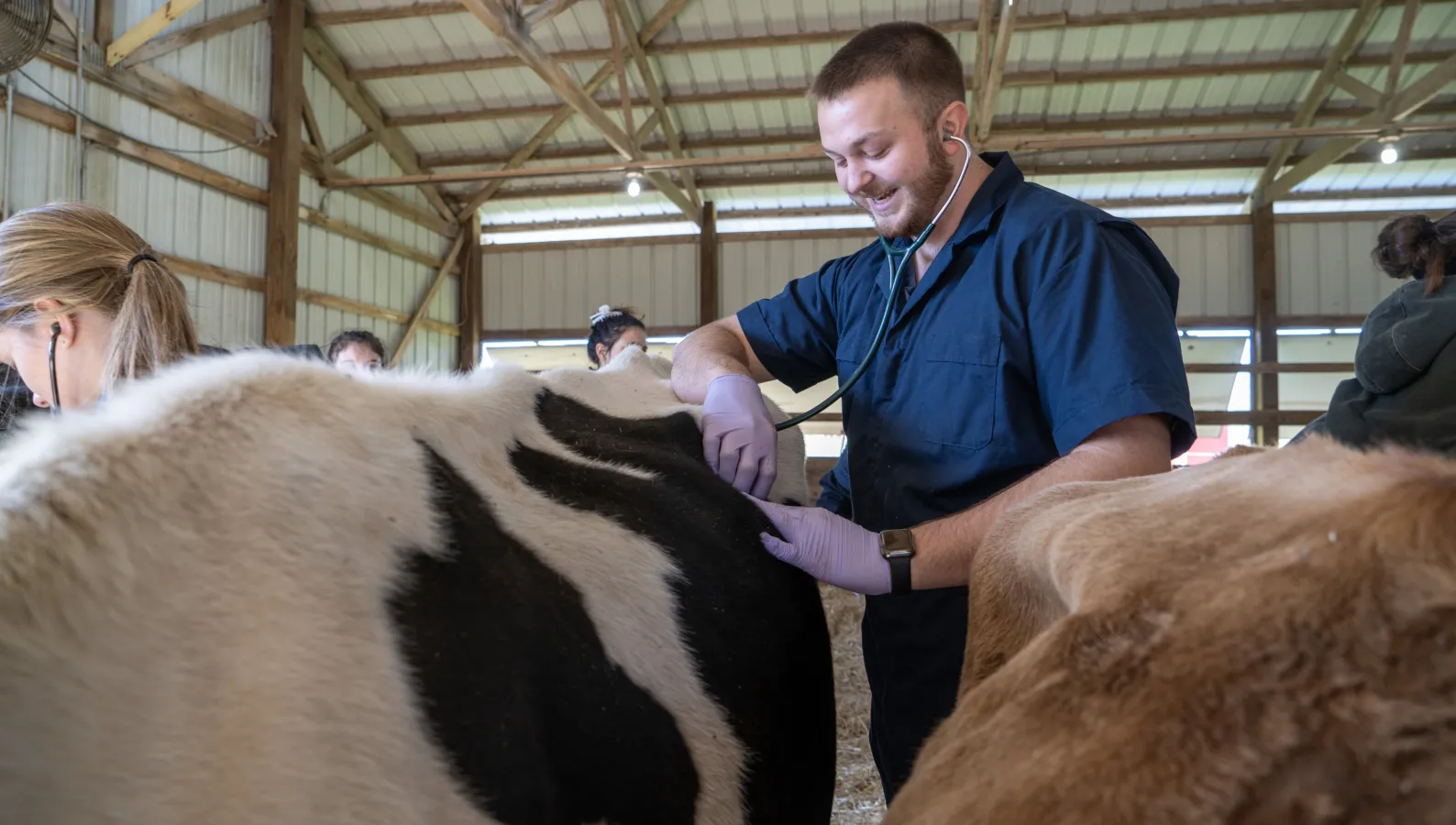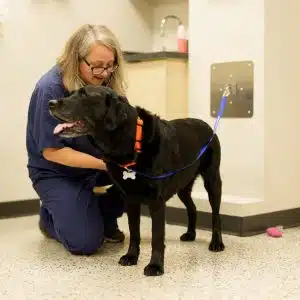Recognizing the Role of a Veterinary Oncologist in Your Animal's Cancer cells Treatment
A veterinary oncologist specializes in dealing with and diagnosing cancer in pets. Their know-how is crucial for establishing personalized therapy plans that deal with the unique requirements of each pet dog. Early diagnosis can greatly impact results, making their duty much more crucial. Comprehending the different treatment choices and just how these professionals collaborate with main veterinarians is vital. What methods do they utilize to enhance your pet's top quality of life throughout this tough time?

What Is a Veterinary Oncologist?
A veterinary oncologist is a customized vet who concentrates on identifying and treating cancer cells in family pets. These professionals possess sophisticated training in both vet medicine and oncology, enabling them to recognize the intricacies of cancerous illness in animals. Their knowledge enables them to do a variety of diagnostic treatments, consisting of imaging techniques and laboratory examinations, to accurately recognize various kinds of cancers in family pets.
In addition to diagnosis, vet oncologists create tailored therapy strategies, which may include surgery, radiation treatment, radiation treatment, or palliative treatment. They work very closely with pet dog owners to describe treatment alternatives and potential outcomes, guaranteeing that households make informed choices regarding their animals' treatment. Furthermore, vet oncologists often collaborate with various other vet professionals and family doctors, developing a complete technique to pet dog health and wellness. By concentrating on cancer cells treatment, they play a critical role in boosting the high quality of life for pet dogs diagnosed with hatreds.
The Significance of Early Medical Diagnosis and Treatment
Early medical diagnosis and therapy of cancer cells in animals considerably enhance the opportunities of effective outcomes and boosted lifestyle. Veterinary oncologists can apply targeted treatments that might slow down illness progression and reduce signs and symptoms when cancer is recognized in its early stages. This proactive approach enables much better monitoring of the illness, potentially resulting in longer survival times and boosted convenience for the pet dog.
Furthermore, very early discovery commonly indicates that therapy options might be much less invasive and more effective, decreasing the total problem on both the pet and its proprietor. Regular veterinary check-ups and understanding of subtle behavioral changes are important, as they can promote timely medical diagnoses. Proprietors should stay attentive and consult their veterinarian at the very first sign of concern. Veterinary Oncology Services. Inevitably, an early medical diagnosis empowers pet owners to make educated decisions about their animal's care, significantly impacting the overall journey through cancer administration
Therapy Choices Supplied by Veterinary Oncologists
When confronted with a cancer cells medical diagnosis, pet proprietors can discover a range of therapy alternatives offered by vet oncologists that are tailored to the certain needs of their pets. These experts normally offer a mix of surgical procedure, radiation treatment, radiation therapy, and immunotherapy. Surgical treatment may aim to remove tumors or affected tissues, while radiation treatment makes use of medicines to target and kill cancer cells, usually carried out in cycles.
Radiation therapy concentrates on making use of high-energy rays to reduce lumps and ease discomfort. Immunotherapy, a much more recent improvement, takes advantage of the family pet's immune system to eliminate cancer cells better. Additional helpful treatments, such as pain monitoring, dietary support, and palliative care, are likewise necessary elements of a comprehensive treatment plan. By assessing each instance individually, veterinary oncologists ensure that the picked treatment aligns with the family pet's general health and cancer cells type, making the most of the possibilities of a favorable result.
The Collaborative Technique: Working With Your Main Vet
Cooperation between vet oncologists and key vets is important for providing substantial treatment to pets identified with cancer cells. This collaboration ensures a thorough technique to treatment, incorporating the specialized knowledge of oncologists with the ongoing treatment offered by main veterinarians. Together, they assess the pet dog's health, develop personalized treatment plans, and monitor the pet dog's development throughout the cancer journey.
Main vets commonly work as the initial factor of call, identifying possible indications of cancer cells and referring individuals to oncologists for specialized diagnostics and therapy choices. Adhering to the oncologist's suggestions, the key veterinarian plays a key role in handling the go to this web-site animal's overall health, consisting of discomfort administration and helpful care.
Efficient communication between these professionals promotes a unified strategy, permitting timely interventions and changes to treatment as needed. This collective technique inevitably improves the quality of care and assistance for animals and their owners during a challenging time.


Supporting Your Animal Via Cancer Treatment
Supporting a pet dog with cancer treatment needs a thorough understanding of the psychological and physical challenges faced by both the animal and its proprietor. Caregivers need to be alert to the family pet's altering requirements, which may consist of handling pain, adjusting diet regimens, and checking side effects from treatments. Giving a comfy, hassle-free setting is vital for the animal's well-being.
Emotional support is just as important; owners must seek to continue to be positive and involved while being conscious of their very own feelings of anxiety and sadness. Developing a support network, including veterinarians, family, and pals, can reduce some problems.
In addition, pet proprietors must inform themselves regarding the specific type of cancer and therapy choices available, cultivating notified conversations with vet oncologists. Eventually, a caring approach, integrated with aggressive treatment and support, can improve the family pet's lifestyle throughout this visit the website difficult trip.
Regularly Asked Inquiries
Just how Do I Choose the Right Veterinary Oncologist for My Animal?
Picking the ideal veterinary oncologist includes researching credentials, seeking recommendations, examining experience with particular cancers cells, evaluating communication styles, and visiting centers to guarantee a comfy environment for both the family pet and owner throughout treatment.
What Should I Anticipate Throughout the First Appointment?
Throughout the first visit, the pet owner can anticipate a detailed evaluation, discussion of case history, diagnostic examinations, and a therapy plan outline. The veterinarian will resolve worries and supply support for continuous treatment.
Are There Any Costs Related To a Veterinary Oncologist's Services?
Prices connected with a vet oncologist's solutions can vary greatly based upon location, treatment intricacy, and required diagnostics. Veterinary Oncology Services. Pet dog owners need to anticipate expenditures for assessments, examinations, and potential recurring treatment strategies tailored to their pet dogs' requirements

Can My Animal Still Receive Routine Veterinary Treatment While Seeing an Oncologist?
Family pets can obtain regular vet care while seeing an oncologist. Collaborating treatments warranties extensive health management. Normal exams complement specialized cancer care, enabling alternative monitoring of the animal's total well-being and addressing various other health worries.
What Resources Are Available for Pet Dog Owners Throughout Their Animal's Cancer cells Journey?
Various resources are offered for pet proprietors navigating their family pet's cancer trip, including support groups, on-line discussion forums, educational sites, and economic support programs, all aimed at this content providing guidance, psychological support, and useful details throughout this challenging time.
A vet oncologist is a customized vet who focuses on treating and detecting cancer in pet dogs. They function carefully with pet dog owners to clarify therapy alternatives and prospective results, ensuring that households make notified decisions about their animals' treatment. When faced with a cancer cells medical diagnosis, animal owners can check out a selection of therapy choices offered by vet oncologists that are customized to the specific needs of their pets. Collaboration in between main vets and veterinary oncologists is crucial for providing substantial care to animals detected with cancer cells. Additionally, animal proprietors must enlighten themselves about the specific type of cancer cells and therapy alternatives available, promoting notified discussions with vet oncologists.